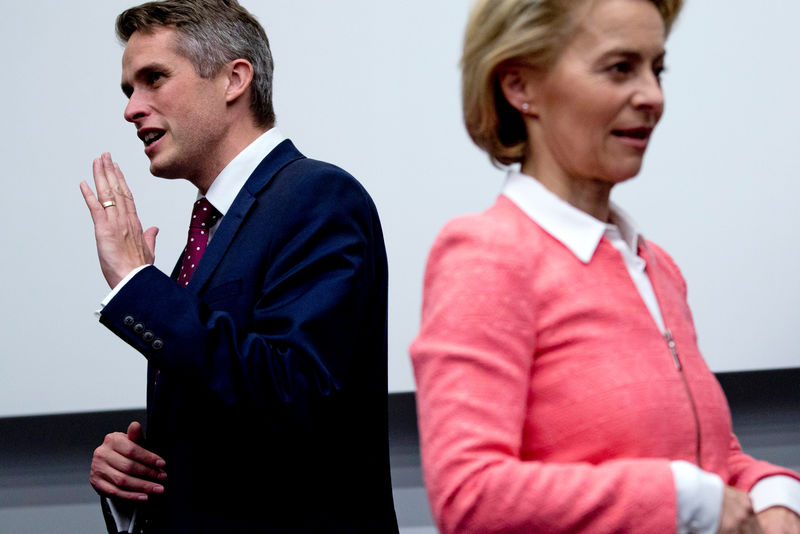BERLIN (Reuters) - Britain signed a military cooperation agreement with Germany on Friday, emphasising London's commitment to helping shield Europe from future security threats at a time when negotiations over its exit from the EU are reaching a crunch.
One of the British government's strongest cards in Brexit negotiations is the expectation that, as the EU country with the highest defence spending, it will continue to play a central role in European security after it leaves the bloc.
Britain's military capabilities easily dwarf those of any other EU member state apart from France. It also has diplomatic and intelligence services that are among Europe's best resourced and most capable.
"We will further strengthen the European pillar in NATO, contribute to European security and improve Europe's resilience to security threats," Britain and Germany said in a document which did not mention Brexit.
British Defence Minister Gavin Williamson and his German counterpart Ursula von der Leyen signed the agreement at a British army barracks in the western German town of Sennelager.
"We are determined to deepen and strengthen our relationship in order to achieve our common defence and security goals," the agreement said. Naval, land and air forces would work closely together and there would be cooperation in defence procurement.
Prime Minister Theresa May has vowed to maintain Britain's commitment to protecting Europe after Brexit. She has accused Russia of fomenting violence in eastern Ukraine, of repeatedly violating the national airspace of several European countries, and mounting a campaign of cyber attacks.
Russia is also blamed for hacking attacks in several European countries, including the Danish defence ministry and the German parliament.

The European Union and Britain are trying to finalise a deal setting out their relationship after March 29, when Britain is expected to leave the bloc. Sources told Reuters that the EU's Brexit negotiators told national diplomats in Brussels late on Thursday that a divorce deal with Britain was "very close".